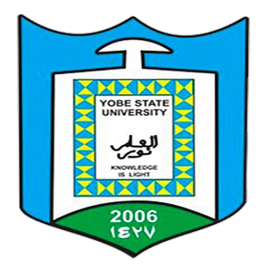Top 7 things that Increases your chances of getting a Scholarship to Study Abroad.
If you’re looking to apply for a scholarship either fully partly-funded, whether post-graduate or Undergraduate, there are some things you could do to increase your chances of getting admission and a scholarship.
These things work for you regardless of your course of choice or university of choice where scholarship opportunities are available.
They help you to be among the selected few as thousands of people applying for scholarships. They give you an impressive CV and help you to get the attention of a professor in your university of choice.
1. Get a good grade
A good grade makes it a lot easier for you to apply to programs without restrictions. Several programs insist on students with a certain grade, often first class and a second class upper. So getting a good grade opens you to a wide number of options. However, if you already graduated with a grade lower than this, you do not need to be discouraged as there are several other opportunities available in many other countries and in any course of your choice depending on the strength of your research and how you meet the requirements.
2. Volunteer
Scholarship boards all over the world and professors love volunteers. Especially if you dedicate your time to volunteering in a field that’s related to your chosen course of study. Not only does it show real interest and seriousness, but it also shows selflessness and that you are willing to put in the work. So volunteer your time and get involved in charities and document it all in your CV.
3. Write articles and publish them
It helps you a lot if you’ve written papers on any topic in your chosen career path and published them. These papers would go a long way in helping you with your application. You can indicate it in your statement of purpose or CV or even mention it in a cold email that you’re sending to your professor. It shows that you’re knowledgeable and passionate about your work. A good way to start this is to publish your final year project.
4. Take training sessions
This is especially important for people who are looking to enter into a new career path. If you studied mass communication in your first degree for instance and you’re looking to break into tech on scholarship, a course in cyber security, product management or any other tech course of your choice would help you greatly. It shows that you have already started transitioning to the new career path. If you can include this in your CV, it would help your chances of getting in.
5. Create a portfolio
Depending on your course of interest, you can create a portfolio detailing all your work and experiences. It makes it very easy for you to be able to show the professors what you’re capable of and the strength of your knowledge. This may not be required for all courses but it can prove very important, especially for creatives and people in tech-related courses.
6. Have a work experience
If you’re applying for a master’s program, work experience is a very good addition to your CV, especially work experience in the sector that you are looking to get into. For instance, if you’re looking to get an LLM, one year of experience in a law firm would be a great addition to your CV. And this is the same for other courses. Work experience shows that you have put your skills into practice and that you have a good knowledge of what you’re doing. It also shows that you’re very likely going to continue on that path after your program and that the resources used to offer you a scholarship would be put to good use.
7. Send cold email to professors
A cold email is an email you send to professors in the university you want to attend and in the department, you would like to study. What a cold email does is that it makes the professors aware of who you are and gives you a chance amongst other applicants.
It is advisable to start sending a cold email at least a year to 6 months before you start applying. This would give you and the professor enough time to build a good relationship and he can share to you tips on what you need to do to be a good candidate.
He can also inform you on whether he has funding or not and if not he may direct you to other professors with funding.
Other important things to do include;
- Work on your Academic CV and statement of purpose
- Build a good relationship with your employers because it will come in handy.
Source: Nairametrics




